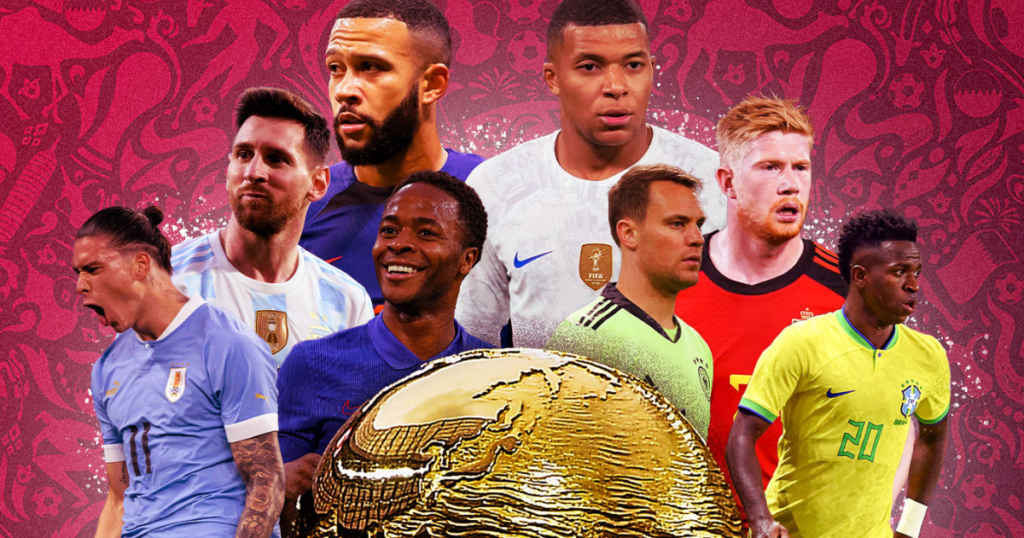As anticipation builds for the FIFA World Cup 2023, hosted by Canada, Mexico, and the United States, football enthusiasts worldwide seek an in-depth understanding of the qualification journey. This ultimate guide navigates the intricacies of the qualification process involving 48 teams from six continental confederations. From the historic 1930 inaugural tournament to the current 211-team qualification landscape, the narrative explores the evolution of World Cup qualification.
As defending champions Argentina look to assert dominance, we delve into the intricacies of the play-off tournament. The significance of the FIFA/Coca-Cola World Ranking, and the impact of historical events like World War II on the beautiful game. Get ready for a comprehensive analysis, unlocking the mysteries behind the quest for global football supremacy in 2023.
Historical Context: Unveiling the Tapestry of FIFA World Cup
● Jules Rimet’s Vision (1930 Inaugural Tournament):
The original organiser of the FIFA World Cup was the visionary Jules Rimet, who planned the first competition in 1930. With 22 editions to date, this international event has persevered through World War II’s storms to become a quadrennial celebration of football brilliance.
● Continental Confederations and Diversity:
The AFC, CAF, Concacaf, CONMEBOL, OFC, and UEFA are among the many continental confederations that make up the global fabric of the World Cup. With teams from Africa, Asia, Europe, North and Central America, the Caribbean, Oceania, and South America coming together to compete for championships, this diversity represents the unity of the footballing world.
The 2023 Edition: A Glimpse into the Dynamics
● Host Nations and Defending Champions:
Canada, Mexico, and the United States stand as hosts for the 2023 edition, setting the stage for a North American extravaganza. Argentina, the defending champions from Qatar 2022, aims to retain their crown amid fierce competition.
● 48 Teams and the FIFA/Coca-Cola World Ranking:
An expanded field of 48 teams intensifies the competition, reflecting the FIFA’s commitment to inclusivity. The seeding and grouping are influenced by the FIFA/Coca-Cola World Ranking, adding a strategic layer to team placement.
● Play-off Tournament and Women’s Worlds of Soccer (2027):
The play-off tournament adds a suspenseful element, determining the final contenders for the coveted spots. Looking ahead, the Women’s Worlds of Soccer in 2027 will continue to elevate the stature of women’s football, building on the momentum generated by past successes.
Navigating the Qualification Maze: A Comprehensive Breakdown
● World Cup Qualifying Groups:
Teams navigate a complex web of World Cup qualifying groups, each presenting unique challenges. The battles within these groups are microcosms of the global football landscape, with underdogs seeking to upset established giants.
● The Legacy of Brazil, Italy, and Germany: Most World Cup Wins:
The 2023 edition honours the legacies of football powerhouses Brazil, Italy, and Germany, each boasting a storied history of World Cup triumphs. The quest for supremacy continues as these titans seek to add another chapter to their illustrious journeys.
● USA Women’s Team Success:
While the men vie for glory, the USA Women’s team stands as a beacon of success. Their achievements resonate, inspiring a new generation and contributing to the growing prominence of women’s football on the international stage.
The 2026 Prelude: A Glimpse into the Future
● World Cup Qualifying Matches Timeline:
As the 2023 qualifiers unfold, attention shifts to the 2026 World Cup qualifying matches. The timeline for these contests adds a layer of excitement, creating a bridge between the current spectacle and the one that looms on the horizon.
● 211 Teams and the World Cup Qualification Process:
A staggering 211 teams participate in the rigorous World Cup qualification process, a testament to the global appeal of football. The journey is as crucial as the destination, and each team’s odyssey contributes to the rich narrative of international football.
Conclusion
In conclusion, the FIFA World Cup 2023 promises to be a spectacle like no other, with a rich tapestry of history, diverse representation, and fierce competition. As teams embark on the challenging road to qualification, football enthusiasts can revel in the anticipation, knowing that the ultimate guide has decoded the complexities of the journey. The echoes of Jules Rimet’s vision resonate as the footballing world unites in celebration, eagerly awaiting the crowning of a new champion on the grand stage.
